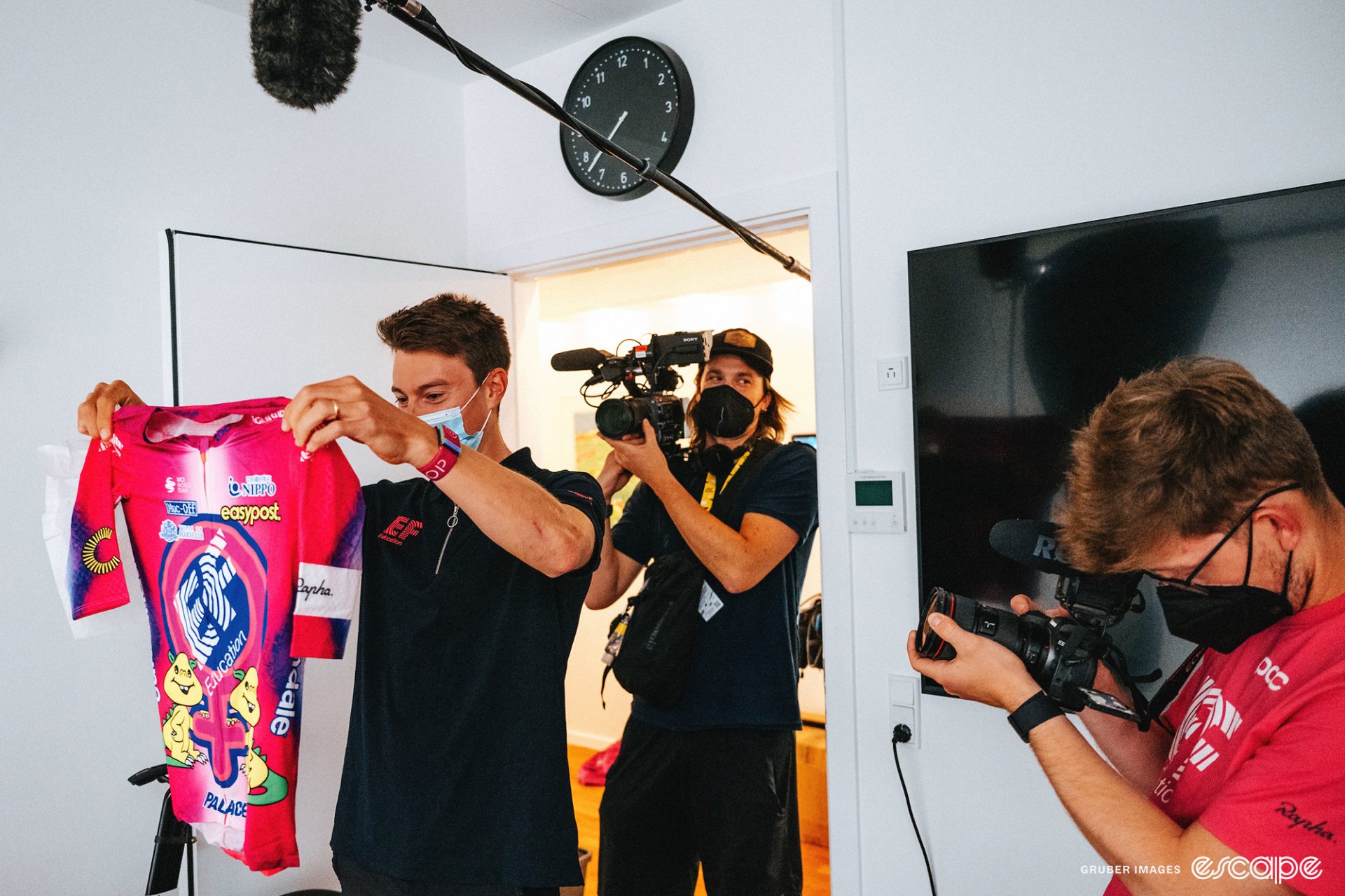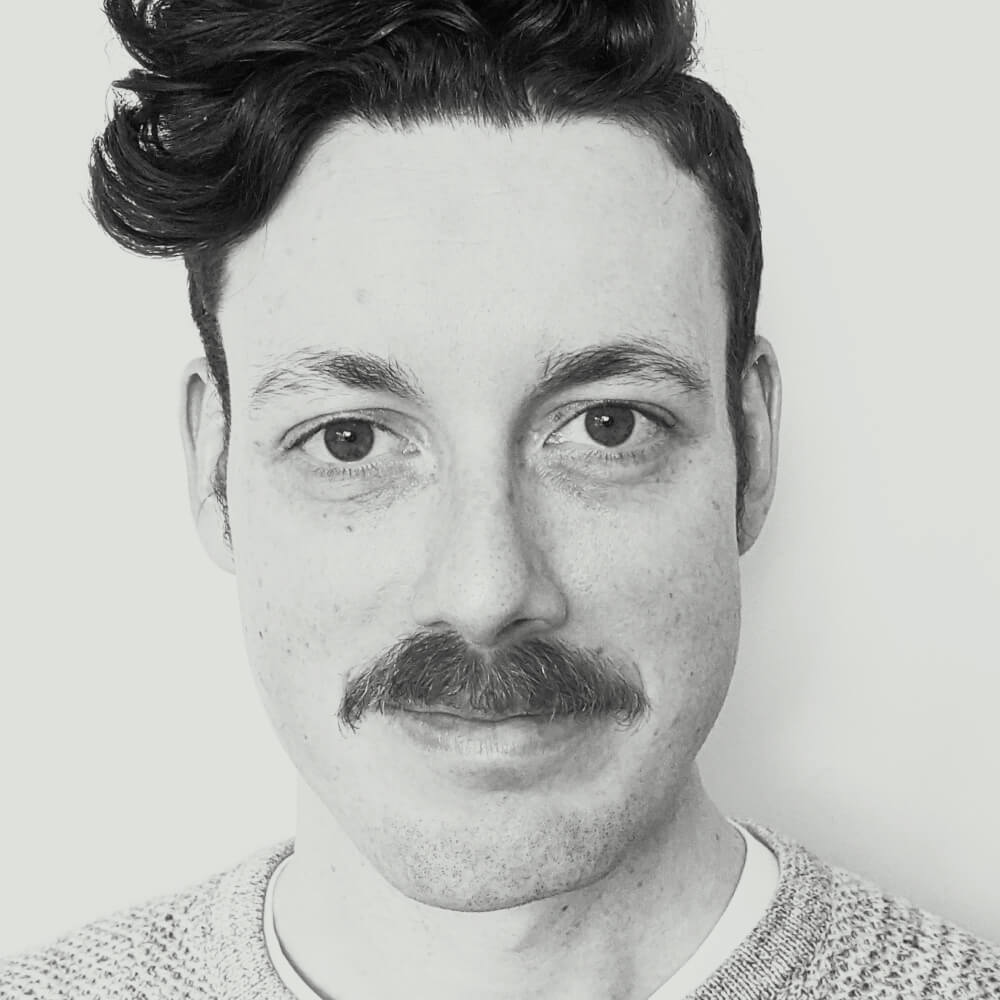It’s a hot day on a motorway from Libourne to Limoges, and the entire rolling Tour de France convoy is making its way along it at once. Not the race itself, but everything else – team buses, TV production vehicles, press, and organisers. Most of them stop at a service station halfway, and just as we’re finishing our lunch, an EF press officer and a couple of other guys in EF Education-EasyPost t-shirts walk in, one of them carrying an expensive camera.
We’re friendly enough with EF that after we’ve said hello to the press officer, Keir Plaice, our attention turns to the production crew. “Are you here with Unchained?” They are. “Mind if we ask a few questions?”
Tour de France Unchained – an eight episode Netflix documentary series produced by the same team that made the popular Formula 1 series Drive to Survive – was released in early June this year, steadily building an audience both inside and outside of cycling. Just before the start of this year’s race it was announced that the show would return for a second series, and – having binged the show and recorded a podcast series in response to it – we had questions. Happily, the guy with the big camera from EF’s production team was happy to answer them.
From an absolutely heaving service station in the middle of France on a boiling hot day with a totally impromptu interview, here’s what we learnt.
What’s your name and what’s your role?
So my name is James Campbell, from Quadbox. I’m a producer/director working as part of one of the embedded crews for the Netflix series Tour de France Unchained.
Were you involved last year?
I was, yes. And I was with Education First last year, too. It’s like being back with old friends, getting the band of brothers back together. I must have done something right for them to ask me back, right?
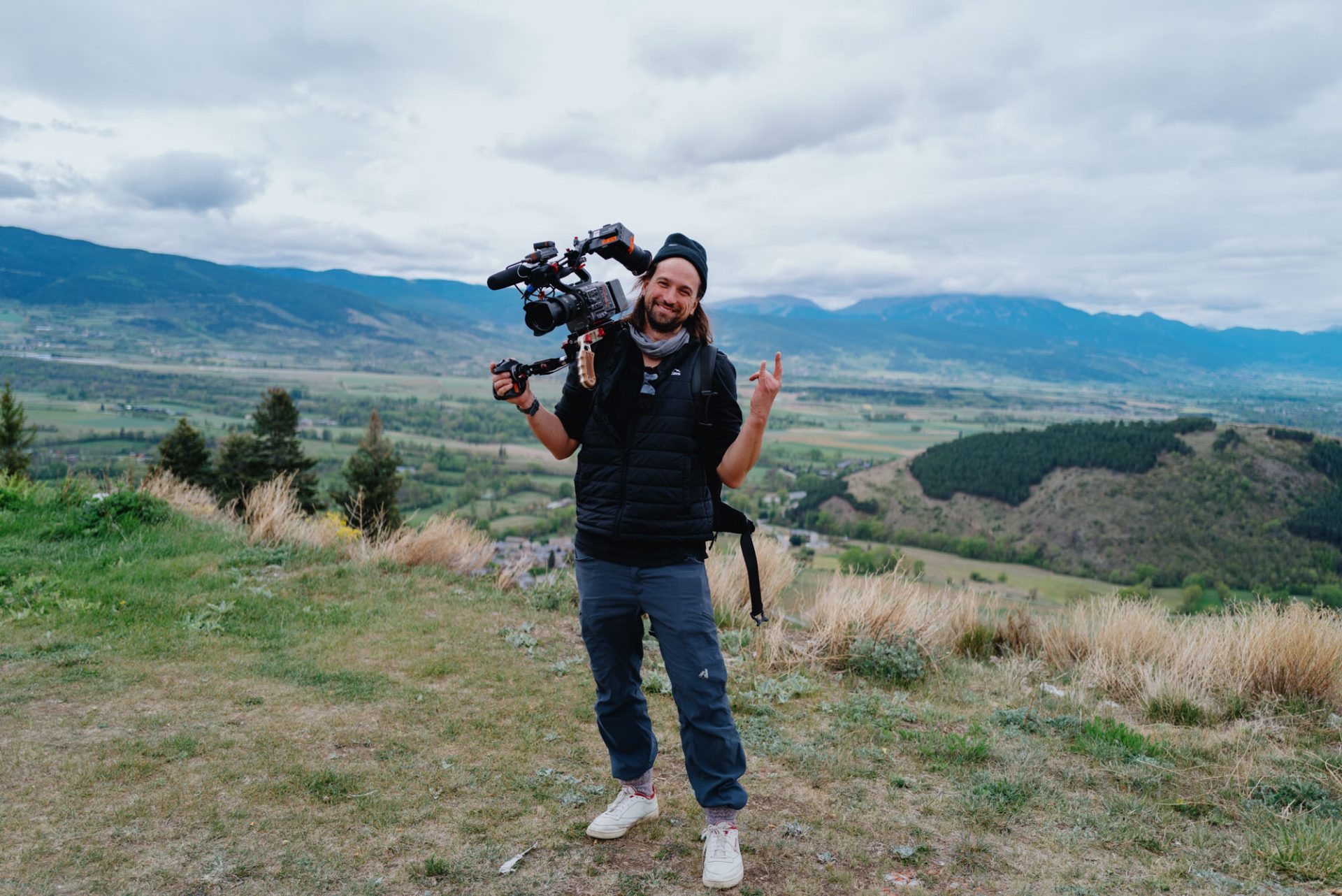
So how many teams are being covered this year?
Eight teams in total.
Exactly the same teams as last year, or…?
Um, I can’t comment on that currently.
Is there a team or a separate little splinter unit following Cav [Mark Cavendish, who crashed out later that day]?
Not that I’m aware of. Actually, I don’t know.
Okay. Do you collaborate with the other camera crews that are following people around, or do you all just do your own thing?
We do our own thing, and we have to keep schtum on things like strategy and stuff like that.
How far in advance of the Tour de France did you begin production of season 2?
A few months, really. We were already kind of in talks before the initial second season was green lit, and now we’re here.
And you began filming before it was greenlit?
There were occasions … there were a couple of training camp sessions we went to, just to try and get some backstory development as well with some characters.
Do you choose ahead of time who the people are that you’re going to follow? Is that how it will work throughout the EF portion of the series?
Yeah, that’s what happens – absolutely [there are] riders that you choose to focus on.
What if another rider does something mind-blowing and you suddenly have to shift focus?
Then we adapt. We shift focus, as you say, we pivot, and then we try and cover that as part of the narrative as well.
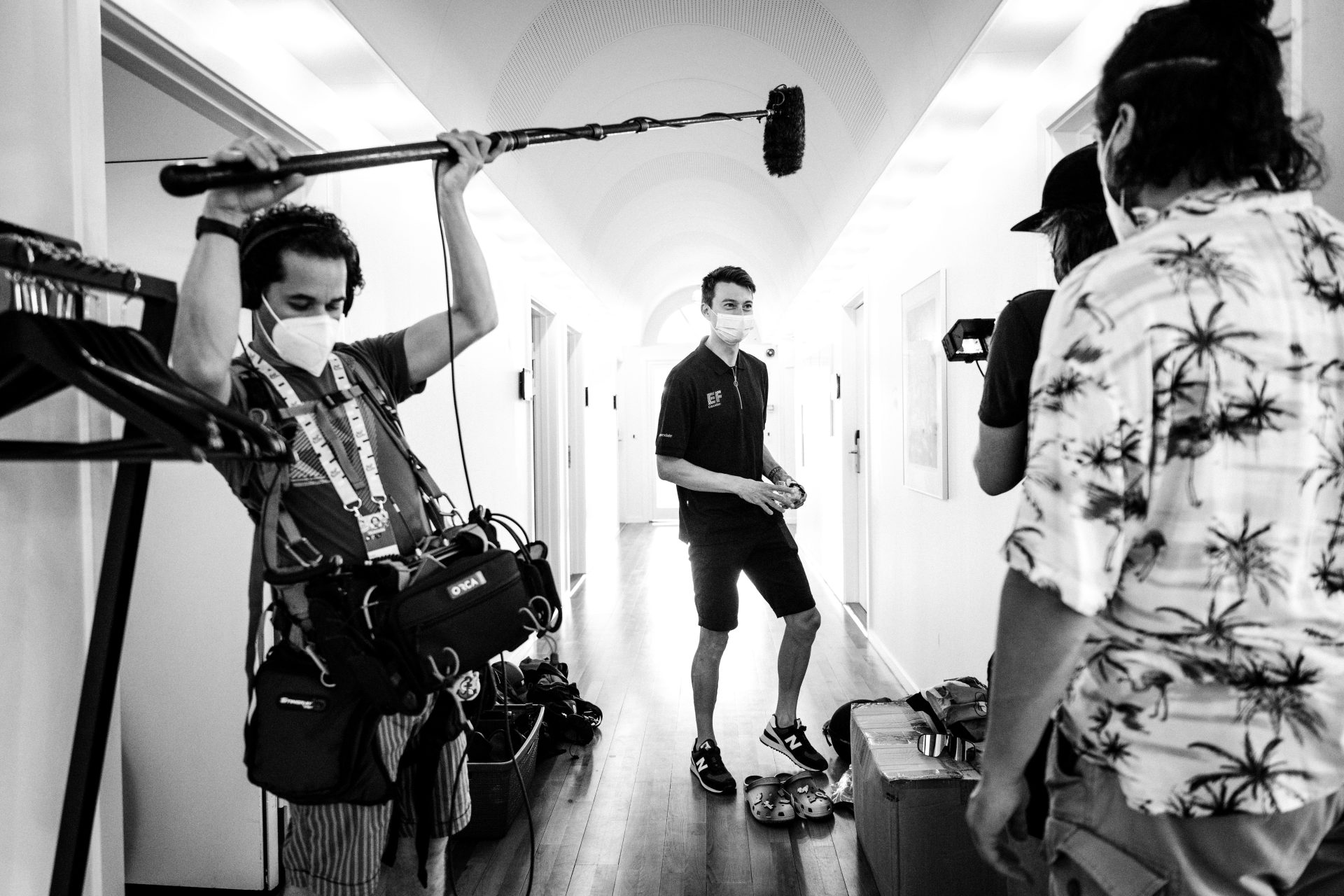
How long is the post-production process?
That’s the million dollar question. I don’t currently know. What I can say is there’s been a forecast of a few months for turnaround, but that might take longer. It all depends on deliverables.
The last one came out June 8th this year – is that because that’s how long it takes for that to be pulled together, or is it targeting the release time for the Tour?
It was very much the latter, basically to try and build as much momentum as possible just before the Tour 2023 now, starting in Bilbao. So we wanted to try and on build audience expectations as much as possible in advance.
And the crews that follow the other teams around – is it a French speaking crew that follows the French?
Yes, principally. We’ve got a really talented roster of producers and directors – everybody across the board, not just the camera operators – but if they speak fluent French, then it’s desirable that they’re in with the French teams and then there’s no language barrier, cultural barrier. It just makes the whole process much more seamless and easier. [ed. the show is a co-production between the French company QuadBox, who handle the French teams, and the English company Box-to-Box]
With the interview segments like those with JV [Jonathan Vaughters], is that filmed on the day, or after the fact as if it was on the day?
It’s normally filmed on the day, like real time. So yeah, the PTCs – the pieces to camera – that I do, with say, JV, it’s trying to get a sense of what’s happening in the here and now. Some points I might cover retrospectively with him just because he hasn’t been in the bus or he’s hasn’t been around for the previous other pivotal stages. But most of the time, we try to do things on the fly and just get a real sense of observationally what’s happening, right in the moment. I think that’s quite crucial to the whole MO of the series.
Are there any bits that you wish made it in last series?
I mean, I very much want to see as much pink as possible in every episode. (laughs)
Were you a cycling fan before, or did you have any interest in cycling?
Yeah, I had an interest in cycling but I think it definitely got galvanised last year. I’m definitely not a professed expert. I think I know more about the Tour and what elite road cycling entails and how it works than i did this time last June. I definitely think I was quite a layperson before I started on this, and now I’ve become a bit of cycling nerd.
Do you think that changes what you do, or that you’re able to focus on things differently?
I think it helps you to steer dynamically what it is you want from the narrative, what you want from the storyline, and you just you have more of a knowledge base as well. So you just get what’s being said – say during the strategy meeting, or discussion with the sports directors. It just helps to broaden your understanding of cycling.
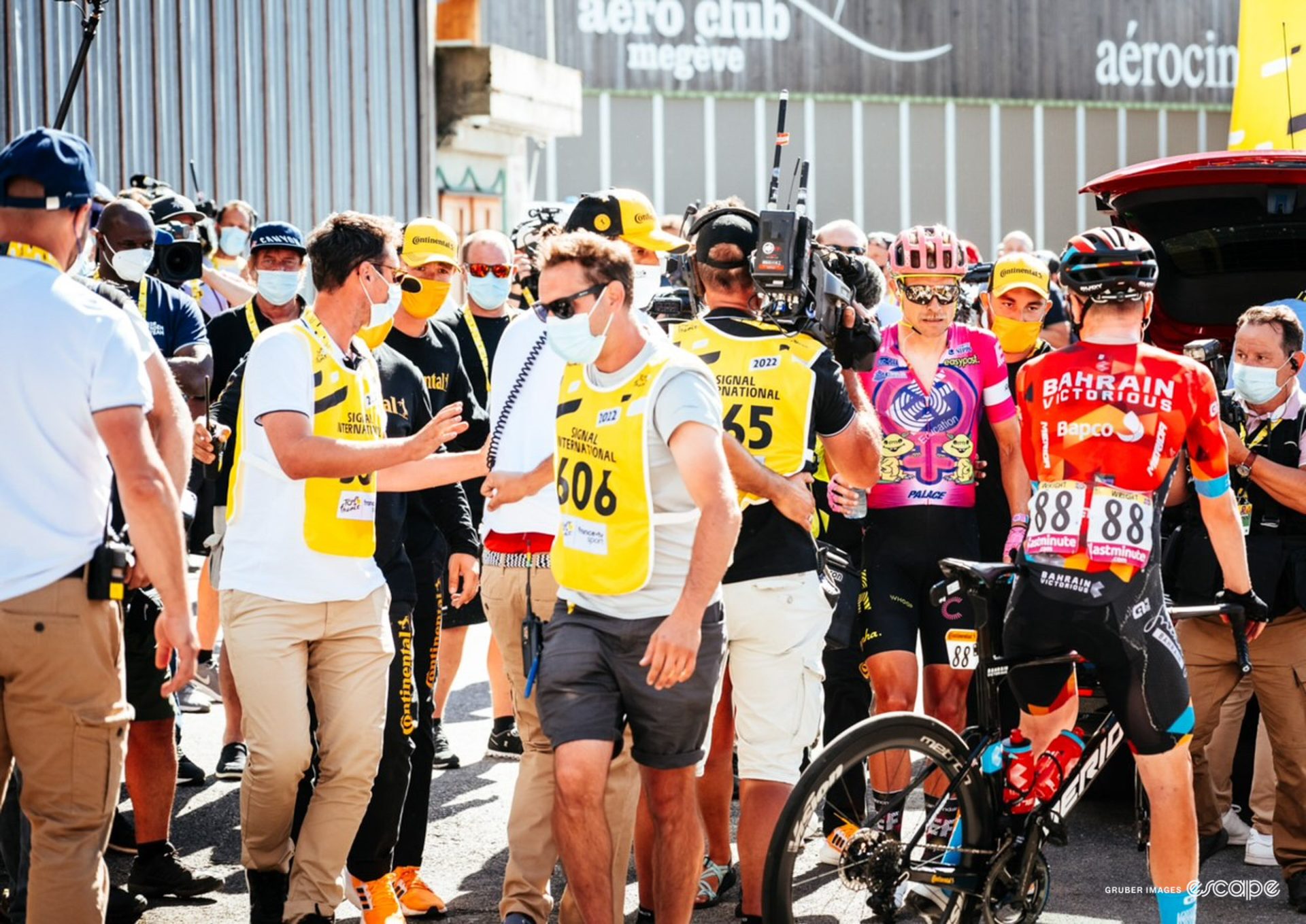
In the parts of the series that were stuff like strategy meetings – like there was one in season one where JV was like, “if we don’t get this right, then the team’s fucked” – is that scripted or played up at all for camera, or is that just as it was?
To tell you the truth, that was very, very unvarnished, very off the cuff. That was raw pure emotion, and we were just rolling at the right time to capture that. So that’s all very kind of visceral emotion. Like I said before, I think it’s important that we have this kind of on the fly, observational style in the way that we shoot the series, because it just means that we’re garnering more of what’s going on.
Say in the bus, outside the bus with the team, we can pick up more of those kind of small nuances – the small moments. When emotions come to the fore, hopefully we’ll be there rolling to capture it.
And when you’re not doing Unchained, are you normally working on documentaries?
I’m a documentary guy. I enjoy what documentary filming entails. And i think working In the right dynamic environment – like, say, at bike races, or with a team like EF – it’s very valuable. It’s a very fulfilling line of work, and they keep me on my toes. It’s great that there’s a real kind of full gas dynamic to these races – and like i said before, it’s good that we can be as adaptable and versatile as possible and make sure that we’re there to to be rolling and and to gather what we can.
I think just getting that emotion from the front line is what viewers from the first series have already gotten excited about, and we want to continue that as much as possible for the second series, and potentially into the foreseeable future.
What did you think of this story?
